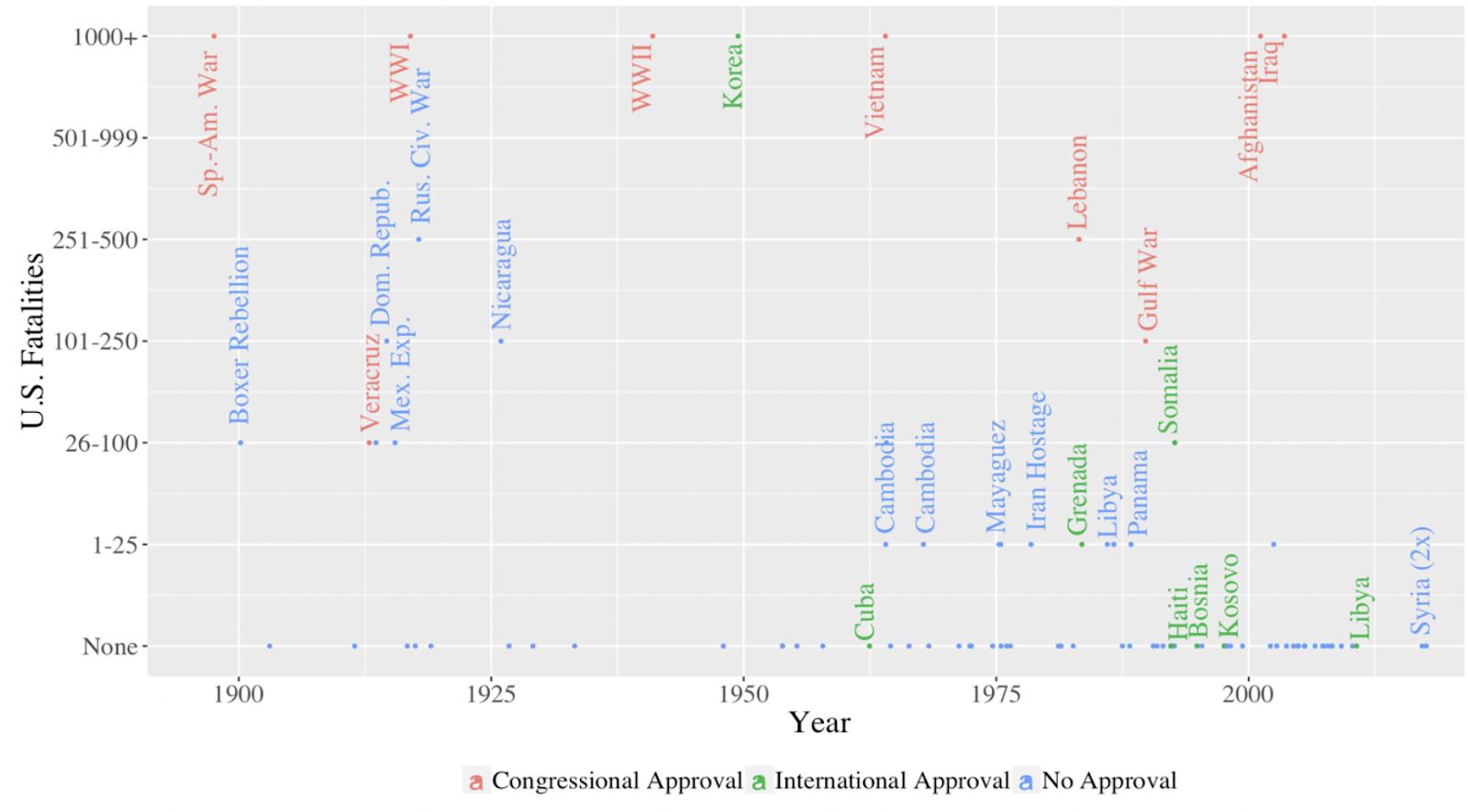The USA has many times in the past taken military action with only the President's order to back it up legally. It was Jefferson that set the precedent of using the military to enforce foreign policy when he ordered the assault on the Barbary Pirates, though there was some measure of congressional approval (I've often wondered why this discussion was not had after the Whiskey Rebellion, but that was different in a few ways). Fast forward to the past two decades and there are numerous examples of the president ordering military assaults on sovereign nations unilaterally, meaning, without any discussion or approval from Congress. The most recent example is that of current President Trump ordering a missile strike on Syrian forces believed responsible for a chemical attack on Syrian citizens.
From my reading, it seems to me that at least some congressional approval is required for any military action, per the Constitution. Many pundits certainly agree. However, many still implicitly support unilateral presidential military orders by not objecting to President Trump's order, and even applauding it. Further, some argue that the Constitution mandates a formal declaration of war if there is to be any military action.
What is the line here? At what point must the president seek congressional approval to order military action? Is it based on targets, scale of the attack, or something else? At what point is a formal declaration of war necessary? Is scale a factor, considering Vietnam and Korea? I have to be honest, it seems like a damn free-for-all with zero checks and balances, and it's just a matter of time until the president unilaterally plunges the world into nuclear war.
